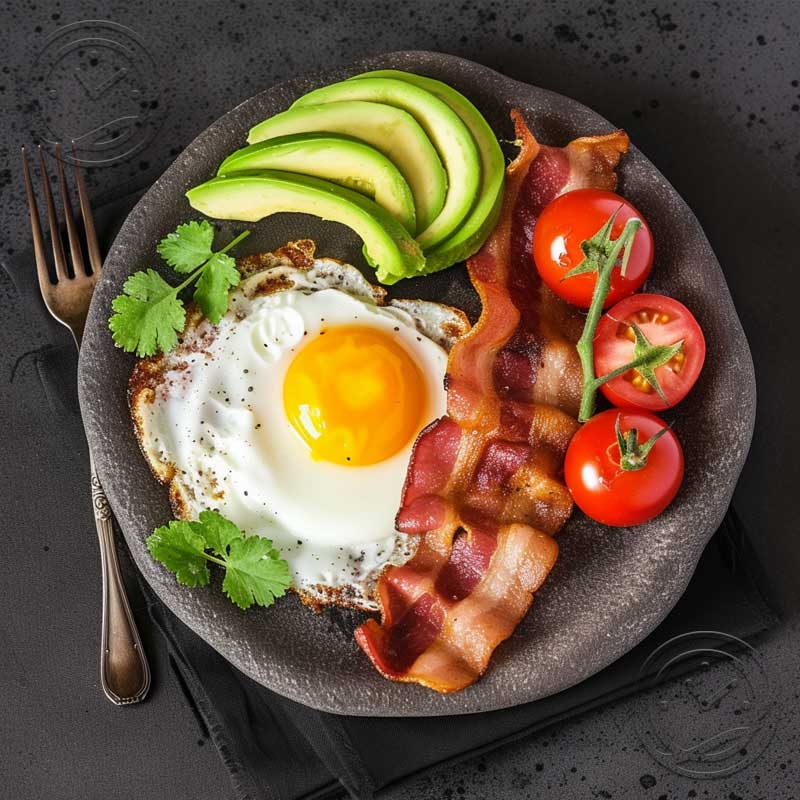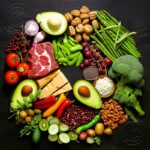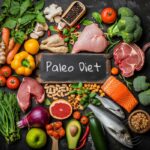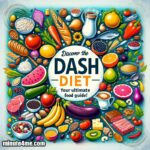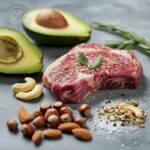What is a Ketogenic Diet?
The ketogenic diet is a low-carb, high-fat diet that has been shown to have many health benefits, including weight loss, improved blood sugar control, and reduced risk of heart disease.
The ketogenic diet works by putting your body into a state of ketosis.
Ketosis is a metabolic state in which your body burns fat for fuel instead of glucose.
This occurs when you restrict your carbohydrate intake to 50 grams or less per day.
When you eat a ketogenic diet, your body produces ketones, which are small molecules that are produced when your body breaks down fat for energy.
Ketones are an alternative fuel source for your brain, and they can help to improve your mental clarity and focus.
The ketogenic diet is a safe and effective way to lose weight and improve your health.
However, it is important to talk to your doctor before starting a ketogenic diet, especially if you have any underlying health conditions.
How Does a Ketogenic Diet Work?
The ketogenic diet is a low-carb, high-fat diet that forces the body to burn fat for fuel instead of glucose.
This is done by drastically reducing carbohydrate intake, which causes the body to enter a state of ketosis.
Ketosis is a metabolic state in which the body produces ketones, which are molecules that are used as fuel by the brain and other organs.
When the body is in ketosis, it burns fat more efficiently and produces more ketones, which can lead to weight loss, improved blood sugar control, and other health benefits.
Here is a simplified overview of how the ketogenic diet works:
- When you eat a ketogenic diet, you drastically reduce your carbohydrate intake. This causes your blood sugar levels to drop and your body to release insulin.
- Insulin tells your body to store glucose as glycogen in your muscles and liver. When your glycogen stores are full, your body starts to break down fat for fuel.
- The breakdown of fat produces ketones, which are molecules that are used as fuel by the brain and other organs.
- When your body is in ketosis, it burns fat more efficiently and produces more ketones, which can lead to weight loss, improved blood sugar control, and other health benefits.
It is important to note that the ketogenic diet is a very restrictive diet and should only be done under the supervision of a doctor.
If you are considering trying the ketogenic diet, talk to your doctor first to make sure it is right for you.
Can You Eat Pasta on a Keto Diet?
Are you on a keto diet and wondering if you can still indulge in delicious pasta dishes? Discover the truth…
Benefits
There are a number of potential benefits of following a ketogenic diet, including:
- Weight loss: The ketogenic diet is a very effective way to lose weight. In fact, studies have shown that people who follow a ketogenic diet can lose up to 2-3 times more weight than people who follow a traditional low-fat diet.
- Improved blood sugar control: The ketogenic diet can help to improve blood sugar control in people with type 2 diabetes. In fact, studies have shown that the ketogenic diet can help to reduce blood sugar levels, improve insulin sensitivity, and reduce the risk of developing diabetes complications.
- Reduced risk of heart disease: The ketogenic diet can help to reduce the risk of heart disease by improving cholesterol levels and reducing inflammation. Studies have shown that the ketogenic diet can help to lower LDL cholesterol, increase HDL cholesterol, and reduce triglycerides.
- Improved brain function: The ketogenic diet can help to improve brain function in people with epilepsy, Alzheimer’s disease, and other neurological disorders. Studies have shown that the ketogenic diet can help to reduce seizures, improve memory, and slow down the progression of Alzheimer’s disease.
- Increased energy levels: The ketogenic diet can help to increase energy levels in people who are overweight or obese. Studies have shown that the ketogenic diet can help to reduce fatigue and improve exercise performance.
- Reduced appetite: The ketogenic diet can help to reduce appetite and cravings. This can make it easier to stick to the diet and lose weight.
It is important to note that the ketogenic diet is not without risks.
It is a very restrictive diet and can lead to side effects such as fatigue, constipation, and headaches.
It is important to talk to your doctor before starting a ketogenic diet to make sure that it is right for you.
Risks
The ketogenic diet can be a safe and effective way to lose weight and improve your health.
However, it is important to be aware of the potential risks before starting a ketogenic diet.
- Keto flu: When you first start a ketogenic diet, you may experience symptoms of keto flu, such as fatigue, headaches, nausea, and muscle cramps. These symptoms are usually temporary and will go away within a few days or weeks.
- Constipation: The ketogenic diet is high in fat and low in fiber, which can lead to constipation. Drinking plenty of water and eating plenty of high-fiber vegetables can help to prevent constipation.
- Kidney stones: The ketogenic diet is high in protein, which can increase your risk of developing kidney stones. Drinking plenty of water can help to reduce your risk of kidney stones.
- Heart problems: The ketogenic diet can raise your LDL (bad) cholesterol and triglyceride levels. This can increase your risk of heart disease. However, it is important to note that these effects are usually only seen in people who already have high cholesterol or triglyceride levels.
- Dehydration: The ketogenic diet is high in fat and low in carbohydrates, which can lead to dehydration. Drinking plenty of water can help to prevent dehydration.
- Muscle cramps: The ketogenic diet can lead to muscle cramps, especially if you are not getting enough electrolytes. Eating plenty of potassium-rich foods, such as avocados, spinach, and bananas, can help to prevent muscle cramps.
It is important to talk to your doctor before starting a ketogenic diet to make sure that it is right for you.
Dive into the world of carbohydrates and ketosis, where weight loss, improved blood sugar control, and reduced risk of heart…
How to Follow a Ketogenic Diet
The ketogenic diet is a high-fat, low-carb diet that has been shown to have many health benefits, including weight loss, improved blood sugar control, and reduced risk of heart disease.
To follow a ketogenic diet, you need to drastically reduce your carbohydrate intake and replace it with fat.
This means that you should eat plenty of healthy fats, such as avocado, olive oil, nuts, and seeds.
You should also eat moderate amounts of protein and very few carbs.
- Reduce your carbohydrate intake to 50 grams or less per day.
- Eat plenty of healthy fats, such as avocado, olive oil, nuts, and seeds.
- Eat moderate amounts of protein.
- Avoid processed foods, sugary drinks, and refined carbohydrates.
If you are new to the ketogenic diet, it is important to start slowly and gradually reduce your carbohydrate intake.
This will help you avoid side effects, such as fatigue, headaches, and nausea.
Once you are adapted to the ketogenic diet, you should be able to enjoy all of the benefits that it has to offer.
Foods to Eat
The ketogenic diet is a high-fat, low-carb diet that forces your body to burn fat for energy instead of carbs.
This is because when you eat a low-carb diet, your body produces ketones, which are molecules that your body can use for energy.
There are many different foods that you can eat on a ketogenic diet, including:
- Meat
- Fish
- Eggs
- Cheese
- Nuts
- Seeds
- Avocados
- Olive oil
- Coconut oil
- MCT oil
You can also eat some vegetables on a ketogenic diet, such as:
- Leafy greens
- Broccoli
- Cauliflower
- Asparagus
- Cucumber
- Tomatoes
It is important to note that you should avoid eating too many carbs on a ketogenic diet, as this will kick you out of ketosis.
The general rule of thumb is to keep your daily carb intake to under 50 grams.
If you are not sure what foods are allowed on a ketogenic diet, there are many resources available online that can help you.
You can also consult with a registered dietitian or nutritionist.
Discover the ancient secrets of the Paleo Diet, a journey back to our ancestral roots. Dive into a world where…
Foods to Avoid
The following foods are not allowed on a ketogenic diet:
- Sugary foods and drinks
- Grains, such as bread, pasta, and rice
- Starchy vegetables, such as potatoes, corn, and peas
- Fruits, except for small amounts of berries
- Legumes, such as beans, lentils, and peanuts
- Dairy products, except for small amounts of hard cheese
- Processed foods, such as packaged snacks and sugary drinks
It is important to note that these are just general guidelines, and there may be some exceptions.
For example, some people may be able to tolerate small amounts of fruits or dairy products on a ketogenic diet.
Ultimately, the best way to determine which foods are right for you is to experiment and see how your body responds.
Ketogenic Diet Meal Plan
The following is a sample ketogenic diet meal plan for one day.
Keep in mind that this is just a sample, and you may need to adjust the foods and amounts to fit your individual needs.
Breakfast:
- 2 eggs
- 1/2 avocado
- 1 cup of spinach
- 1 tablespoon of olive oil
Lunch:
- Salad with grilled chicken
- avocado
- tomatoes
- cucumbers
- olive oil dressing
Dinner:
Salmon fillet with roasted vegetables (broccoli, cauliflower, carrots)
Snacks:
- Handful of nuts
- Cheese stick
- Hard-boiled egg
It is important to note that this is just a sample meal plan, and you may need to adjust the foods and amounts to fit your individual needs.
Be sure to consult with a registered dietitian or nutritionist before starting a ketogenic diet to make sure it is right for you.
Supplements
The following supplements may be helpful for people following a ketogenic diet:
- MCT oil: MCT oil is a type of fat that is easily converted into ketones, making it a good choice for people following a ketogenic diet. MCT oil can help to increase ketone levels, promote weight loss, and improve brain function.
- Exogenous ketones: Exogenous ketones are ketones that are produced in a lab and taken as a supplement. Exogenous ketones can help to increase ketone levels and provide energy during periods of fasting or intense exercise.
- Chromium: Chromium is a mineral that helps to regulate blood sugar levels. Chromium can be helpful for people following a ketogenic diet, as it can help to prevent or reduce the symptoms of keto flu.
- Magnesium: Magnesium is an essential mineral that is involved in a number of bodily functions, including energy production and muscle function. Magnesium can be helpful for people following a ketogenic diet, as it can help to reduce fatigue and improve sleep.
- Sodium: Sodium is an essential mineral that helps to regulate fluid balance and blood pressure. Sodium can be helpful for people following a ketogenic diet, as it can help to prevent or reduce the symptoms of keto flu.
It is important to note that supplements should not be used as a substitute for a healthy diet and lifestyle.
Talk to your doctor before taking any supplements, as they may interact with other medications or conditions.
FAQ
Q: What are some common mistakes people make on the ketogenic diet?
A: There are a number of common mistakes people make on the ketogenic diet, including not eating enough fat, not drinking enough water, and not getting enough electrolytes.
Q: How long does it take to see results on the ketogenic diet?
A: It can take a few weeks to see results on the ketogenic diet. However, most people start to see weight loss, improved blood sugar control, and increased energy levels within a few weeks of starting the diet.
Q: Is the ketogenic diet safe for everyone?
A: The ketogenic diet is not safe for everyone. People with certain medical conditions, such as kidney disease, liver disease, and diabetes, should not follow the ketogenic diet.
